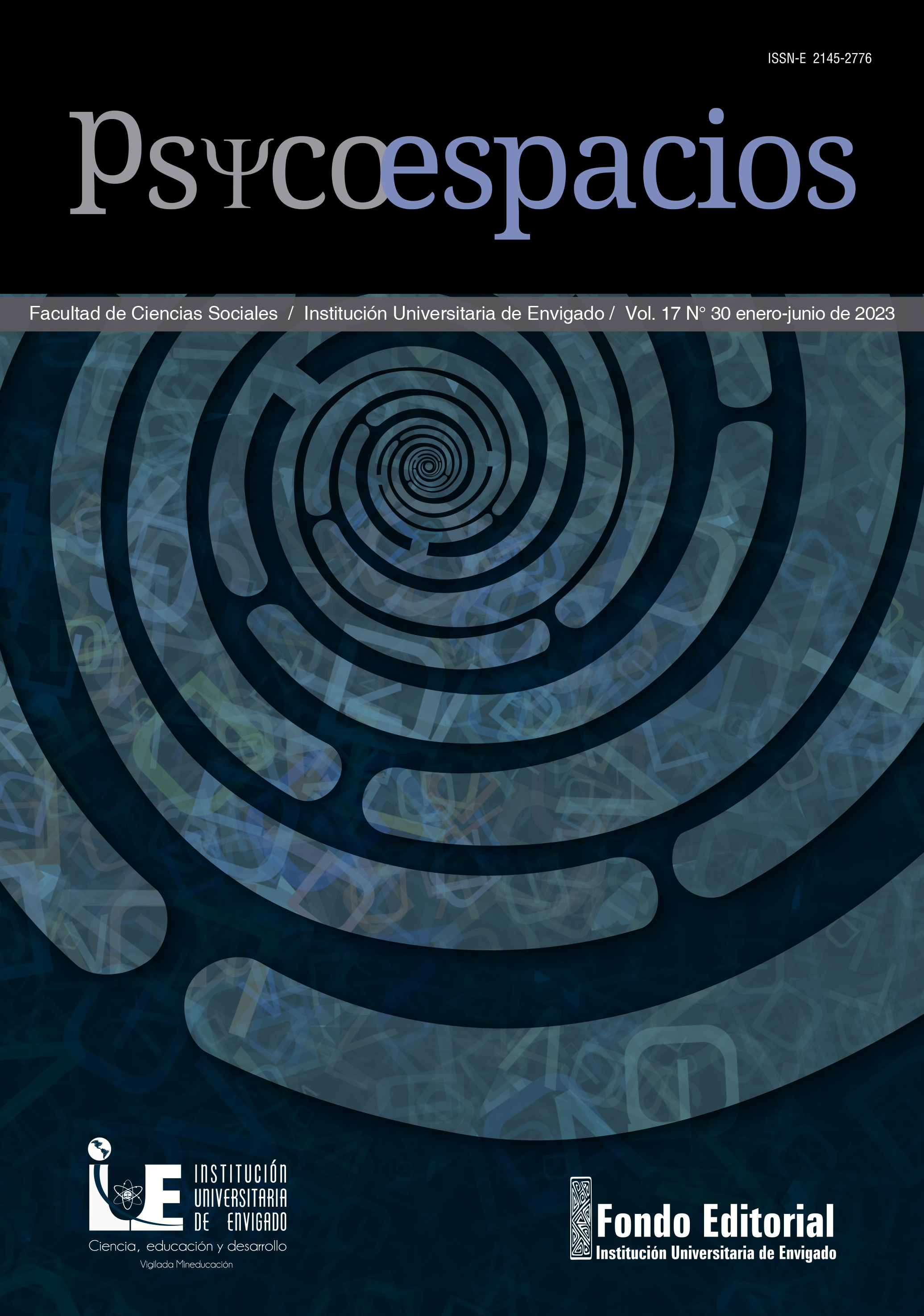Intervenciones psicológicas para el tratamiento de la fibromialgia: una revisión narrativa
DOI:
https://doi.org/10.25057/21452776.1519Palabras clave:
revisión, intervenciones psicológicas, tratamiento, fibromialgiaResumen
La fibromialgia es una enfermedad reumática crónica cuya principal característica es un dolor profundo y persistente en la mayor parte del cuerpo. Aunque el número de personas diagnosticadas de esta afección va en aumento, actualmente sigue sin haber un único tratamiento de referencia debido a su posible etiología multicausal. No obstante, dado el gran componente psicológico presente en la enfermedad, el objetivo de esta revisión es dar a conocer las principales intervenciones psicológicas que se han utilizado hasta el momento para tratar los síntomas emocionales de estos pacientes. De esta manera, se pretende poner de manifiesto que existen otras opciones alternativas a los psicofármacos, los cuales han demostrado tener una eficacia clínica cuestionable, por todos los efectos secundarios perjudiciales para quienes optan por su uso.
Biografía del autor/a
Gonzalo Sebastián Peña-Muñante, Universidad de Almería
Psicólogo, máster en Psicología General Sanitaria y máster en Ciencias del comportamiento. Universidad de Almería, España
Referencias bibliográficas
Amutio, A., Franco, C., Pérez-Fuentes, M. C., Gázquez, J. J. & Mercader, I. (2015). Mindfulness training for reducing anger, anxiety, and depression in fibromyalgia patients. Frontiers in Psychology, 5, 1572. https://doi.org/10.3389/fpsyg.2014.01572
Bernardy, K., Klose, P., Welsch, P. & Häuser, W. (2018). Efficacy, acceptability and safety of cognitive behavioural therapies in fibromyalgia syndrome – A systematic review and meta-analysis of randomized controlled trials. European Journal of Pain, 22(2), 242-260. https://doi.org/10.1002/ejp.1121
Burns, J. W., Nielson, W. R., Jensen, M. P., Heapy, A., Czlapinski, R. & Kerns, R. D. (2015). Specific and general therapeutic mechanisms in cognitive behavioral treatment of chronic pain. Journal of Consulting and Clinical Psychology, 83(1), 1-11. https://doi.org/10.1037/a0037208
Cabo-Meseguer, A., Cerdá-Olmedo, G. & Trillo-Mata, J. L. (2017). Fibromialgia: Prevalencia, perfiles epidemiológicos y costes económicos. Medicina Clínica, 149(10), 441-448. https://doi.org/10.1016/j.medcli.2017.06.008
Carmassi, C., Ciapparelli, A., Cappelli, A., Dell'Oste, V., Bertelloni, C. A., Foghi, C., Amatori, G., Pedrinelli, V., Bazzichi, L. & Dell'Osso, L. (2021). Naturalistic 6-month antidepressants follow-up in patients with fibromyalgia: Impact on somatic and mood spectrum symptoms. Clinical and Experimental Rheumatology, 39(3), 33-38. https://doi.org/10.55563/clinexprheumatol/j4nkzd
Carta, M. G., Ruggiero, V., Sancassiani, F., Cutrano, F., Manca, A. R., Peri, M., Fais, A. & Cacace, E. (2013). The use of antidepressants in the long-term treatment should not improve the impact of fibromyalgia on quality of life. Clinical Practice & Epidemiology in Mental Health, 9, 120-124. https://doi.org/10.2174/1745017901309010120
Cederberg, J. T., Cernvall, M., Dahl, J., von Essen, L. & Ljungman, G. (2016). Acceptance as a mediator for change in acceptance and commitment therapy for persons with chronic pain? International Journal of Behavioral Medicine, 23(1), 21-29. https://doi.org/10.1007/s12529-015-9494-y
Climent, C. O., Ballester, M. C. & Cantus, D. S. (2019). Calidad de vida en pacientes con fibromialgia: Revisión bibliográfica. Revista Española de Enfermería de Salud Mental, 8, 4-10. https://doi.org/10.35761/reesme.2019.8.02
Costa, A. V. F., Bezerra, L. C. & Paula, J. A. (2021). Use of psychotropic drugs in the treatment of fibromyalgia: A systematic review. Journal of Human Growth and Development, 31(2), 336-345. https://doi.org/10.36311/jhgd.v31.12228
D’Onghia, M., Ciaffi, J., Ruscitti, P., Cipriani, P., Giacomelli, R., Ablin, J. N. & Ursini, F. (2022). The economic burden of fibromyalgia: A systematic literature review. Seminars in Arthritis and Rheumatism, 56, 152060. https://doi.org/10.1016/j.semarthrit.2022.152060
Droppert, K. M. & Knowles, S. R. (2022). The role of pain acceptance, pain catastrophizing, and coping strategies: A validation of the common sense model in females living with fibromyalgia. Journal of Clinical Psychology in Medical Settings. https://doi.org/10.1007/s10880-022-09873-w
Furnes, B. & Dysvik, E. (2012). Therapeutic writing and chronic pain: Experiences of therapeutic writing in a cognitive behavioural programme for people with chronic pain. Journal of Clinical Nursing, 21(23-24), 3372-3381. https://doi.org/10.1111/j.1365-2702.2012.04268.x
Gayà, T. F., Ferrer, C. B., Mas, A. J., Seoane-Mato, D., Reyes, F. A., Sánchez, M. D., Dubois, C. M., Sánchez-Fernández, S. A., Vargas, L. M. R., Morales, P. V. G., Olivé, A., Muñoz, P. R., Larrosa, M., Ricós, N. N., Sánchez-Piedra, C., Díaz-González, F. & Bustabad-Reyes, S. (2020). Prevalence of fibromyalgia and associated factors in Spain. Clinical and Experimental Rheumatology, 38(1), 47-52.
Ghavidel-Parsa, B. & Bidari, A. (2021). Two sides on the fibromyalgia coin: Physical pain and social pain (invalidation). Clinical Rheumatology 40(3), 841-848. https://doi.org/10.1007/s10067-020-05304-z
Ghavidel-Parsa, B., Bidari, A., Tohidi, S., Shenavar, I., Leyli, E. K., Hosseini, K. & Khosousi, M. J. (2021). Implication of invalidation concept in fibromyalgia diagnosis. Clinical Rheumatology, 40(6), 2369-2376. https://doi.org/10.1007/s10067-020-05515-4
Govillard, L., Gorbeña, S. & Iraurgi, I. (2022). Cognitive behavioral therapy with and without biofeedback in fibromyalgia: Assessment of functional and clinical change. Health Psychology Open, 9(1). https://doi.org/10.1177/20551029221106044
Häuser, W., Wolfe, F., Tölle, T., Üçeyler, N. & Sommer, C. (2012). The role of antidepressants in the management of fibromyalgia syndrome: A systematic review and meta-analysis. CNS Drugs, 26(4), 297-307. https://doi.org/10.2165/11598970-000000000-00000
Karademas, E. C., Karekla, M., Flouri, M., Vasiliou, V. S., Kasinopoulos, O. & Papacostas, S. S. (2017). The impact of experiential avoidance on the relations between illness representations, pain catastrophising and pain interference in chronic pain. Psychology & Health, 32(12), 1469-1484. https://doi.org/10.1080/08870446.2017.1346193
Kumbhare, D., Ahmed, S. & Watter, S. (2018). A narrative review on the difficulties associated with fibromyalgia diagnosis. Therapeutic Advances in Musculoskeletal Disease, 10(1), 13-26. https://doi.org/10.1177/1759720X17740076
Leça, S. & Tavares, I. (2022). Research in mindfulness interventions for patients with fibromyalgia: A critical review. Frontiers in Integrative Neuroscience, 16, 920271. https://doi.org/10.3389/fnint.2022.920271
Ma, T. W., Yuen, A. S. & Yang, Z. (2023). The efficacy of acceptance and commitment therapy for chronic pain: A systematic review and meta-analysis. The Clinical Journal of Pain, 39(3), 147-157. https://doi.org/10.1097/AJP.0000000000001096
Maurel, S., Sáez-Francàs, N., Calvo, N., Alegre-Martín, J. & Castro-Marrero, J. (2022). Identifying mindfulness and acceptance as mediators between negative affect, functional disability and emotional distress in patients with fibromyalgia. Clinical and Experimental Rheumatology, 40(6), 1102-1111. https://doi.org/10.55563/clinexprheumatol/uzzejn
Montero-Marín, J., Navarro-Gil, M., Puebla-Guedea, M., Luciano, J. V., Van Gordon, W., Shonin, E. & García-Campayo, J. (2018). Efficacy of “attachment-based compassion therapy” in the treatment of fibromyalgia: A randomized controlled trial. Frontiers in Psychiatry, 8, 307. https://doi.org/10.3389/fpsyt.2017.00307
Montoro, C. I. & Galvez-Sánchez, C. M. (2022). The mediating role of depression and pain catastrophizing in the relationship between functional capacity and pain intensity in patients with fibromyalgia. Behavioural Neurology, 2022, 9770047. https://doi.org/10.1155/2022/9770047
Onieva-Zafra, M. D., Parra-Fernández, M. L. & Fernandez-Martinez, E. (2019). Benefits of a home treatment program using guided imagery relaxation based on audio recordings for people with fibromyalgia. Holistic Nursing Practice, 33(2), 111-120. https://doi.org/10.1097/HNP.0000000000000317
Pérez-Aranda, A., Barceló-Soler, A., Andrés-Rodríguez, L., Peñarrubia-María, M. T., Tuccillo, R., Borraz-Estruch, G., García-Campayo, J., Feliu-Soler, A. & Luciano, J. V. (2017). Description and narrative review of well-established and promising psychological treatments for fibromyalgia. Mindfulness & Compassion, 2(2), 112-129. https://doi.org/10.1016/j.mincom.2017.10.002
Pérez, J. M. C. & Vázquez, I. A. (2018). Relación del apoyo social y familiar con la aceptación del dolor en pacientes con fibromialgia. International Journal of Psychology & Psychological Therapy, 18(2), 151-161.
Rico-Villademoros, F., Postigo-Martin, P., Garcia-Leiva, J. M., Ordoñez-Carrasco, J. L. & Calandre, E. P. (2020). Patterns of pharmacologic and non-pharmacologic treatment, treatment satisfaction and perceived tolerability in patients with fibromyalgia: A patients' survey. Clinical and Experimental Rheumatology, 38(1), 72-78.
Santos, A., Crespo, I., Pérez-Aranda, A., Beltrán-Ruiz, M., Puebla-Guedea, M. & García-Campayo, J. (2022). Attachment-based compassion therapy for reducing anxiety and depression in fibromyalgia. International Journal of Environmental Research and Public Health, 19(13), 8152. https://doi.org/10.3390/ijerph19138152
Seoane-Mato, D., Sánchez-Piedra, C., Silva-Fernández, L., Sivera, F., Blanco, F. J., Ruiz, F. P., Juan-Mas, A., Pego-Reigosa, J. M., Narváez, J., Martí, N. Q., Verdú, R. C., Antón-Pagés, F., Vila, V. Q., Courel, L. G., Amo, N. V., Zudaire, I. P., Sturchio, G. A., Varo, F. M., Tudela, M. M. R., … Bustabad, S. (2019). Prevalencia de enfermedades reumáticas en población adulta en España (2019). Objetivos y metodología. Reumatología Clínica, 15(2), 90-96. https://doi.org/10.1016/j.reuma.2017.06.009
St. John, A. W., Aebischer, J. H., Friend, R. & Jones, K. D. (2022). Fibromyalgia: A clinical update. The Nurse Practitioner, 47(4), 20-30. https://doi.org/10.1097/01.NPR.0000822536.18719.50
Thorn, B. E. (2017). Cognitive therapy for chronic pain: A step-by-step guide (2ª ed.). Guilford Press.
Tomas-Carus, P., Branco, J. C., Raimundo, A., Parraca, J. A., Batalha, N. & Biehl-Printes, C. (2018). Breathing exercises must be a real and effective intervention to consider in women with fibromyalgia: A pilot randomized controlled trial. Journal of Alternative and Complementary Medicine, 24(8), 825-832. https://doi.org/10.1089/acm.2017.0335
Vallejo, M. A., Vallejo-Slocker, L., Offenbaecher, M., Hirsch, J. K., Toussaint, L. L., Kohls, N., Sirois, F. & Rivera, J. (2021). Psychological flexibility is key for reducing the severity and impact of fibromyalgia. International Journal of Environmental Research and Public Health, 18(14), 7300. https://doi.org/10.3390/ijerph18147300
Wolfe, F., Clauw, D. J., Fitzcharles, M. A., Goldenberg, D. L., Häuser, W., Katz, R. L., Mease, P. J., Russell, A. S., Russell, I. J. & Walitt, B. (2016). 2016 Revisions to the 2010/2011 fibromyalgia diagnostic criteria. Seminars in Arthritis and Rheumatism, 46(3), 319-329. https://doi.org/10.1016/j.semarthrit.2016.08.012
Cómo citar
Descargas
Publicado
Número
Sección
Licencia
Derechos de autor 2023 Institución Universitaria de Envigado

Esta obra está bajo una licencia internacional Creative Commons Atribución-NoComercial-CompartirIgual 4.0.

| Estadísticas de artículo | |
|---|---|
| Vistas de resúmenes | |
| Vistas de PDF | |
| Descargas de PDF | |
| Vistas de HTML | |
| Otras vistas | |




